Table of Contents
This guide presents the 10 best WordPress ecommerce plugins for 2025. A well-chosen set of tools, often called a “tech stack,” can work together to create a powerful and efficient system. Disconnected tools can lead to data silos and inefficiencies, whereas an integrated platform provides a more holistic view of your business and customers. We will explore a range of solutions that address the various needs of an online business—from store creation and marketing to performance optimization and customer management—helping you build an effective ecommerce presence.
The Foundation of Your Online Store
To build a successful online store, you need a solid foundation. This involves choosing the right platform and tools to create and manage your website, display products effectively, and provide a smooth customer experience that is both professional and reflective of your brand.
1 . Elementor Pro
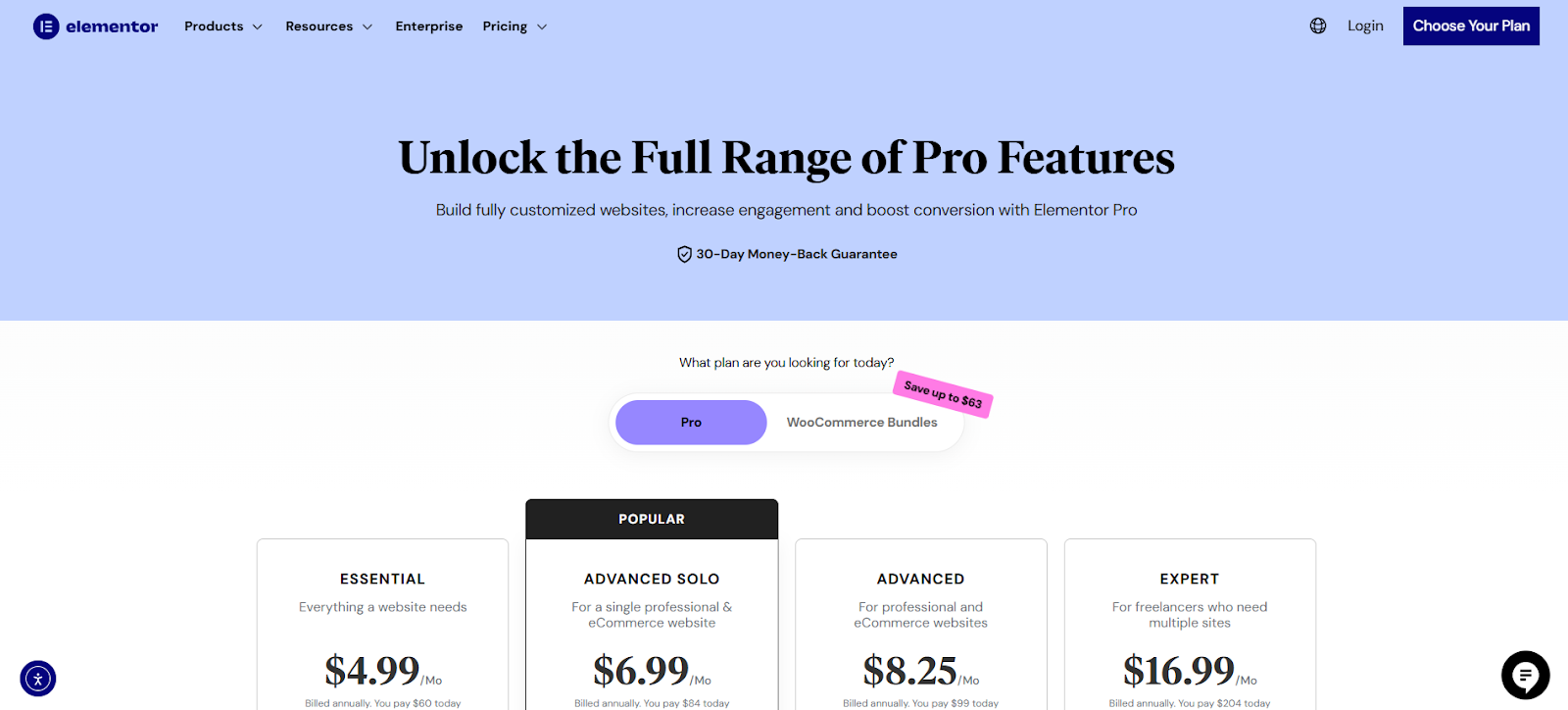
Elementor Pro extends the core capabilities of WordPress and the free Elementor editor, providing a comprehensive suite of advanced tools and features that act as a central hub for design and marketing. For ecommerce sites, its Theme Builder is a significant asset, giving you complete control over every global part of your site’s theme, including headers, footers, and product templates. This level of control is crucial for creating a cohesive and professional online store without requiring code writing.
The plugin also includes a variety of marketing capabilities essential for growth. The intuitive Form Builder helps you create contact forms, lead generation forms, and customer surveys, while the Popup Builder is instrumental for capturing leads, promoting special offers, and growing your email list. With a library of over 118 widgets, you have specialized tools for nearly any purpose, from advanced design elements to specific marketing functions like countdown timers and testimonials.
Furthermore, the ability to incorporate Dynamic Content allows you to build sophisticated, content-driven websites. You can pull content directly from WordPress and display it anywhere on your site, which is perfect for creating custom product grids, personalized user dashboards, and other dynamic listings that keep your site fresh and engaging. With over 18 million active installations, Elementor has established itself as a reliable and powerful tool for web creators worldwide.
2. WooCommerce
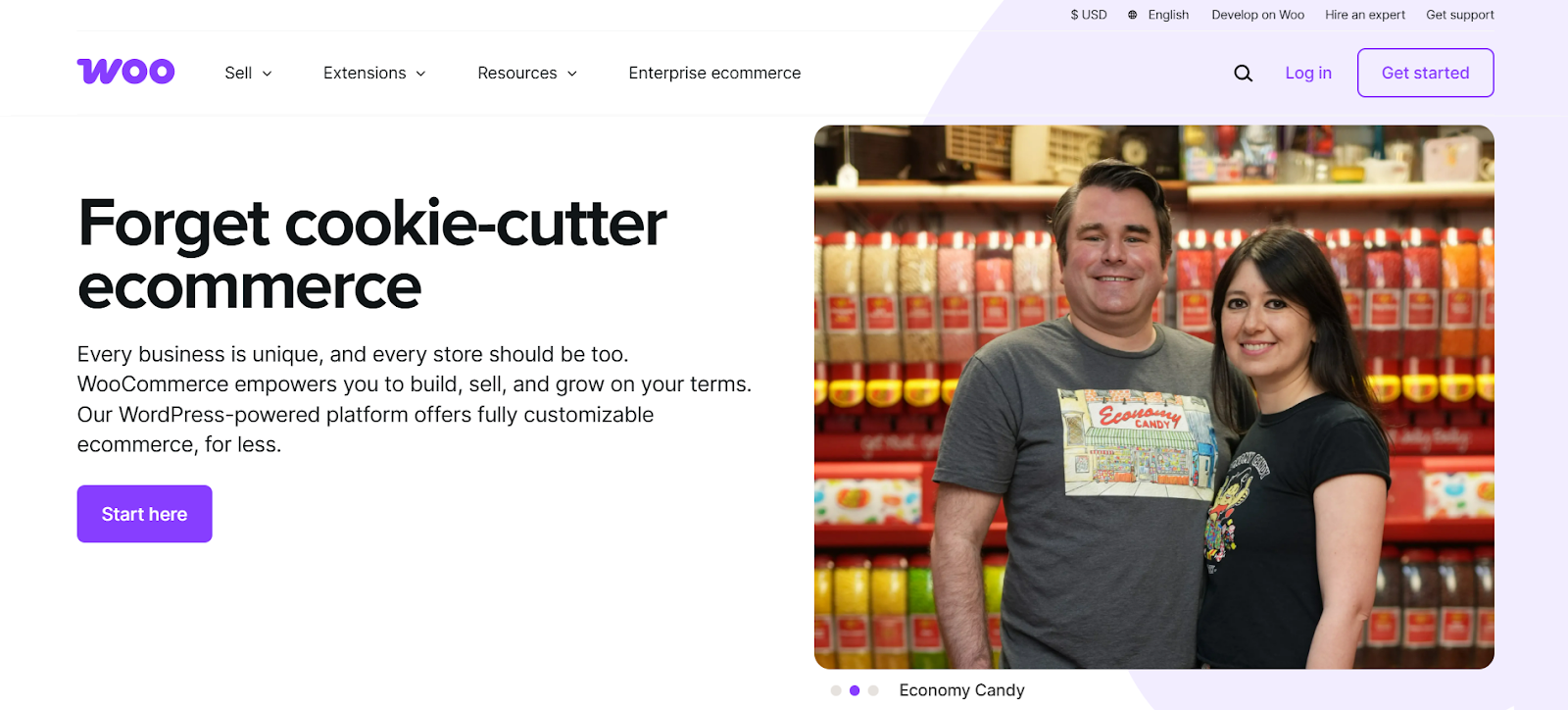
WooCommerce is a widely-used, open-source ecommerce plugin for WordPress. It provides the essential functionalities to transform a standard WordPress site into a fully functional online store. At its core, WooCommerce allows you to add products, categorize them, manage inventory levels, and process payments through various gateways. It supports the sale of both physical and digital goods, offering flexibility for different business models.
For web creators who need full creative control, the integration between Elementor and WooCommerce is particularly powerful. Using Elementor’s intuitive drag-and-drop editor, you can visually customize every key part of your WooCommerce store. This includes individual product pages, product listing or archive pages, and critical transactional pages like the My Account dashboard, Shopping Cart, and Checkout process. This capability allows you to move beyond standard templates and build a unique, branded shopping experience that stands out from the competition and resonates with your target audience.
Enhancing User Experience and Conversions
Once your store is built, the focus shifts to attracting visitors and converting them into customers. This involves optimizing every touchpoint of the user experience, building trust through social proof, and creating a clear path to purchase.
3. Yotpo: Reviews, Loyalty & SMS
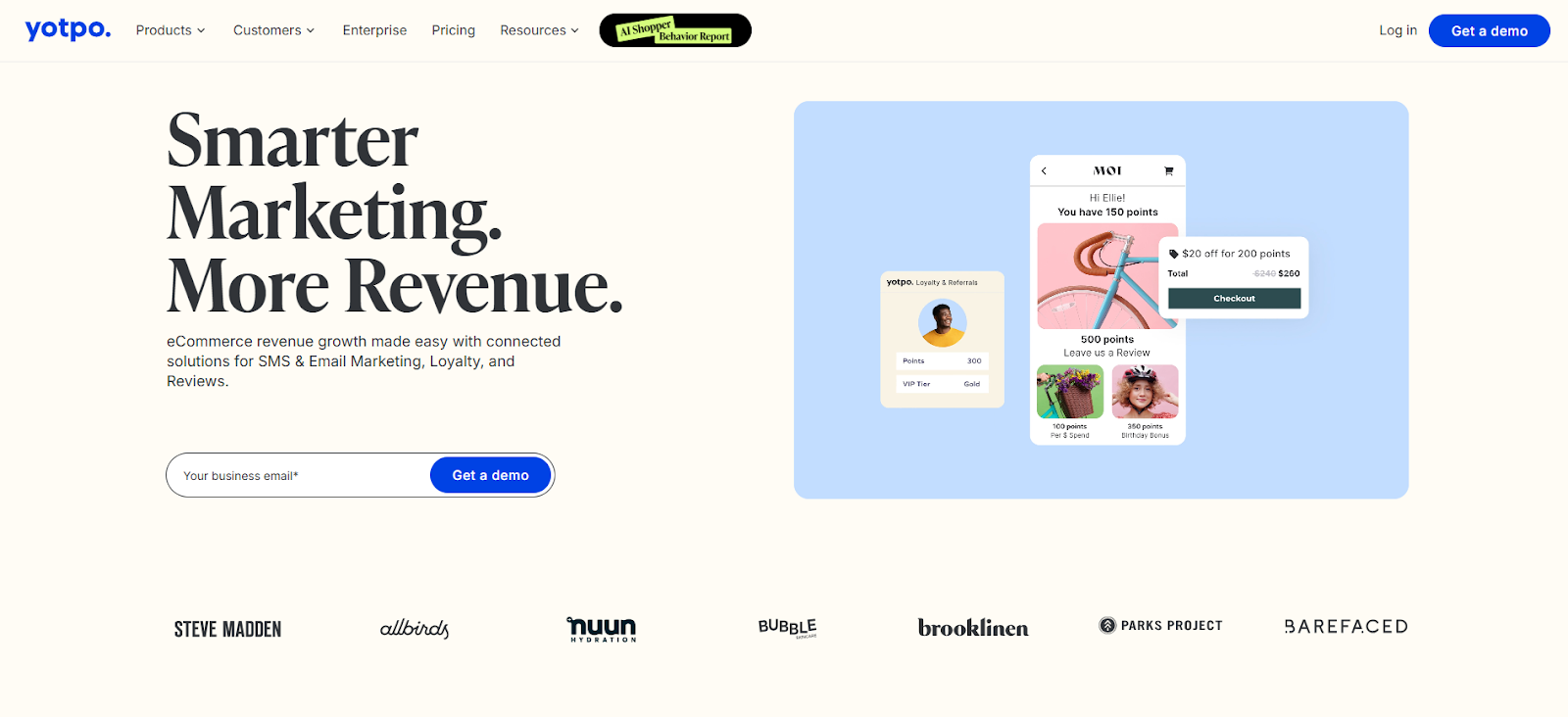
Product reviews are a powerful tool for building trust and influencing purchasing decisions. 93% of consumers in the U.S. report that online reviews impact their buying choices. Yotpo’s platform for WordPress allows businesses to effectively collect, manage, and display customer reviews and ratings. Displaying authentic user-generated content helps new customers feel more confident in their purchases.
Beyond reviews, Yotpo offers tools for building customer loyalty and retention. By implementing loyalty and referral programs, you can foster what is known as “emotional loyalty”—a connection that goes beyond transactional exchanges. These programs reward repeat purchases, incentivize social sharing, and turn satisfied shoppers into brand advocates using features like point systems and tiered rewards. This strategy helps in creating a community around your brand and increasing customer lifetime value. The platform also integrates SMS and email marketing, allowing for powerful, data-driven communication across multiple channels to engage customers throughout their journey.
4. SalesPop

Cart abandonment remains a significant challenge for online retailers. On average, nearly 70% of shopping carts are abandoned before the purchase is completed, representing a substantial amount of lost revenue. SalesPop addresses this challenge by leveraging psychological principles like social proof and FOMO (fear of missing out).
The plugin displays small, real-time notifications on your site that show recent sales activity. When a visitor sees that other people are actively buying products, it builds credibility and creates a sense of a bustling, trusted storefront. This can reduce purchase hesitation and encourage visitors to complete the checkout process. The popups can be customized to match your store’s branding, ensuring they feel like a natural part of the shopping experience.
5. Ally by Elementor

Web accessibility ensures that your website is usable by people with a wide range of disabilities. This is not only a matter of social responsibility but also a growing legal consideration, with regulations like the European Accessibility Act (EAA) setting new standards for digital products. Ally by Elementor is a plugin designed to help you make your WordPress site more accessible.
Ally provides practical tools that empower both site owners and visitors. It includes a usability widget that allows users to make real-time adjustments, such as increasing text size or changing contrast for better readability. It also features an Accessibility Statement Generator to help you communicate your commitment and efforts toward accessibility. Future developments include an on-demand Accessibility Scanner and a guided remediation flow to help creators identify and resolve issues. Importantly, Ally is built for all WordPress websites, extending its benefits beyond the Elementor user base.
Marketing and SEO Tools
Effective marketing and search engine optimization (SEO) are vital for driving qualified traffic to your online store. With 68% of online experiences beginning with a search engine, visibility is paramount. The right tools can help you reach your target audience, improve your search rankings, and create compelling content that converts.
6. Moz Pro
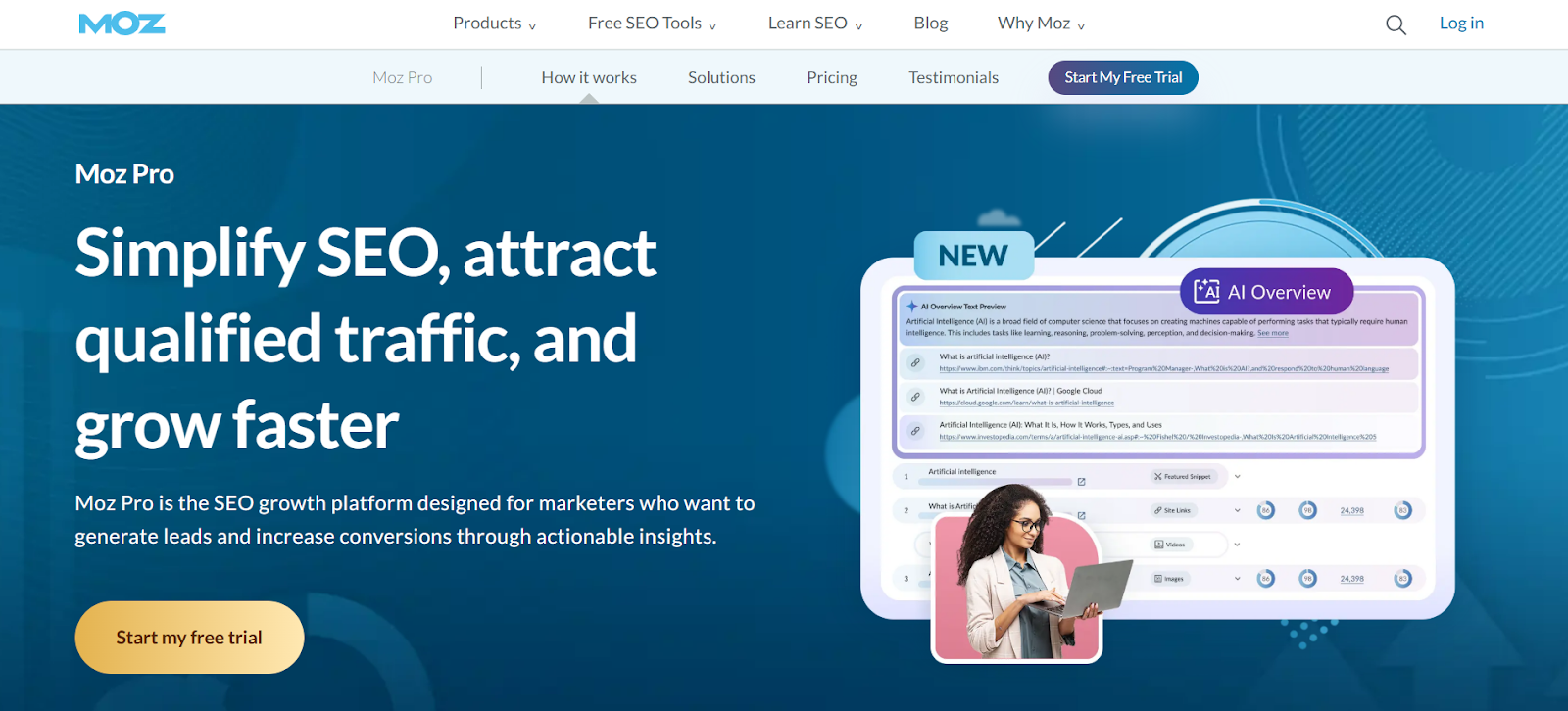
Search engine optimization is a multi-faceted discipline, especially for ecommerce. It involves on-page optimization (product descriptions, meta titles), technical SEO (site speed, mobile-friendliness, site structure), and off-page SEO (backlinks from reputable sources). Moz Pro offers a comprehensive suite of SEO tools designed to help ecommerce businesses improve their organic visibility across all these areas.
The platform provides a robust site audit tool that crawls your website to identify technical SEO problems that could be hindering your performance in search results. Its keyword research tools are particularly valuable for online stores, as they help you discover high-value search terms that indicate commercial intent. Furthermore, Moz Pro’s competitor analysis features allow you to benchmark your site against other stores in your niche, identify content gaps, and uncover strategic opportunities to gain a competitive edge.
7. AdRoll
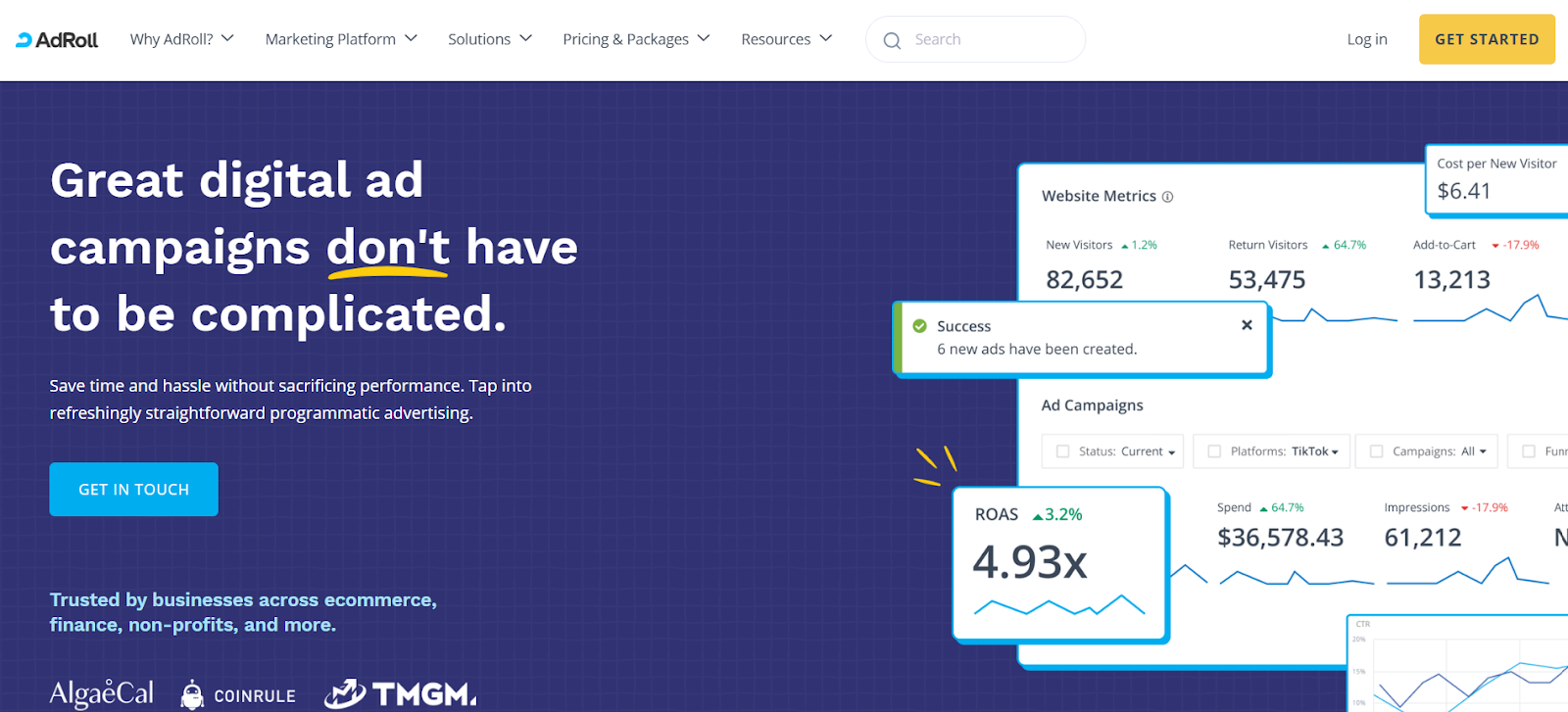
Digital advertising is a powerful method for boosting brand awareness and driving targeted traffic to your site. AdRoll is a digital advertising platform that enables businesses to create and manage personalized ad campaigns across the web and social media. It helps you engage customers at different stages of the marketing funnel, from initial awareness to final purchase.
AdRoll offers a wide range of features, including retargeting campaigns that reconnect with visitors who have left your site without making a purchase. It also provides automated audience segmentation and advanced targeting options based on context, user demographics, and look-alike audiences that mirror your best customers. With integrated analytics and attribution reporting, you can track the performance of your campaigns and make data-driven decisions to optimize your ad spend and maximize your return.
8. Elementor AI
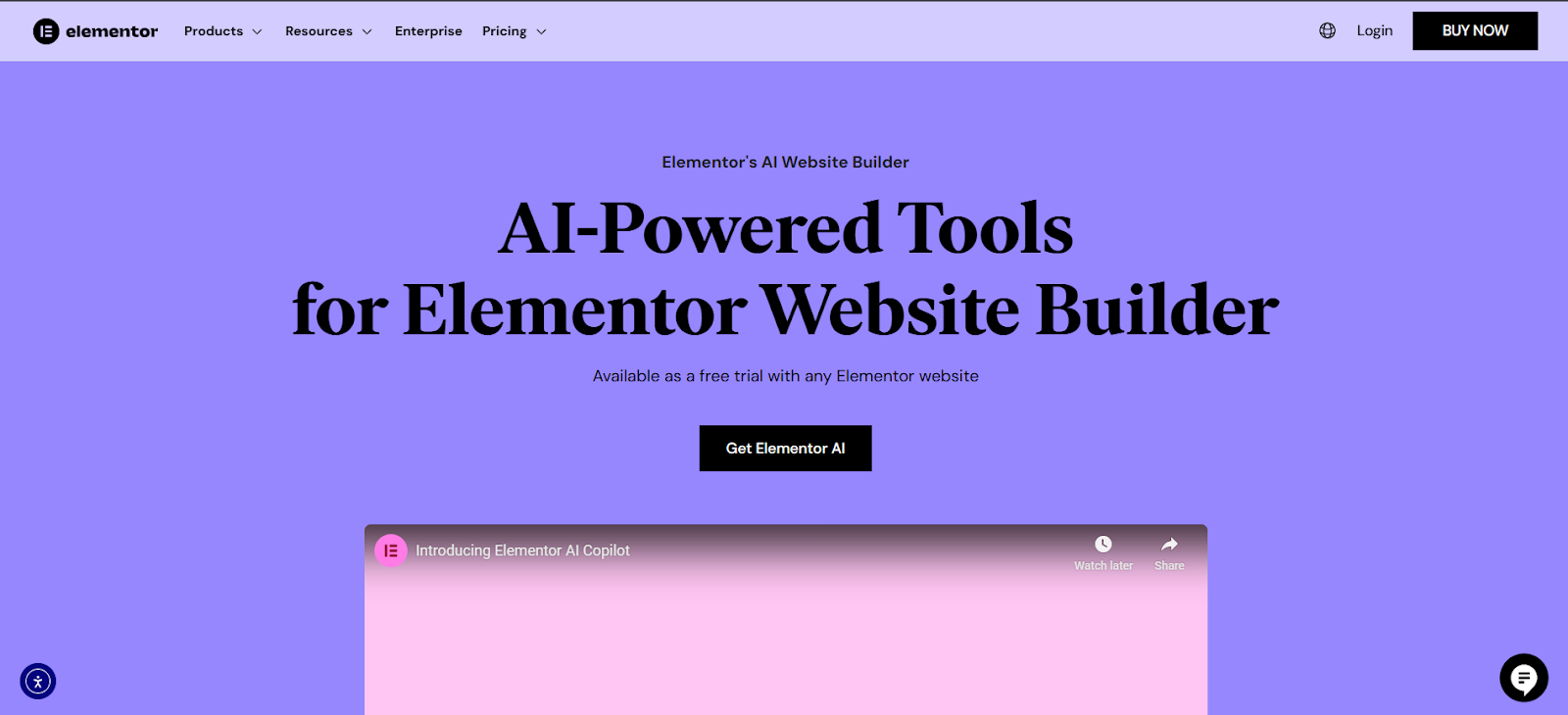
Artificial intelligence is transforming the way websites are built and managed. Elementor AI is a creative assistant built directly into the Elementor Editor, designed to streamline the entire web creation process by assisting with content, design, and even code. This native integration means you can generate and refine website elements without ever leaving your workflow, saving time and reducing friction.
- AI for Content: Overcome “blank page paralysis” by generating high-quality, on-brand copy for headlines, product descriptions, CTAs, and more, directly within a widget.
- AI for Design: Jumpstart your creative process by generating entire page sections (containers) from a simple text prompt, such as “a hero section for a sustainable shoe brand.”
- AI for Images: Produce professional images without external tools. You can remove backgrounds, use Generative Fill to expand pictures, or create entirely new visuals from a prompt, all within the editor.
- AI for Code: Add custom styling and functionality by generating custom CSS snippets. While you should review the output, this feature empowers you to make unique design tweaks without needing to write code from scratch.
Elementor AI acts as a powerful assistant, empowering you to work faster and more efficiently while maintaining full creative control.
Store Optimization and Management
A successful ecommerce store requires continuous optimization and efficient management. This includes ensuring your site loads quickly, your images are optimized for the web, and your communication channels with customers are reliable.
9. Image Optimizer by Elementor

Website performance, particularly page load speed, is a critical factor for both user experience and SEO. Slow-loading pages can lead to higher bounce rates and lower conversion rates. Large, unoptimized images are one of the most common culprits behind poor performance. The Image Optimizer by Elementor is a plugin that addresses this by automatically compressing and converting images to improve site speed while preserving visual quality.
The plugin helps websites load faster by reducing image file sizes by an average of 60%. It supports conversion to next-gen formats like WebP and AVIF, which offer superior compression compared to traditional formats like JPEG and PNG. Key features include bulk optimization for your existing media library, automatic optimization of new uploads, and the ability to resize oversized images. This tool works seamlessly in the background and can be used on any WordPress website, helping to improve your Core Web Vitals and search engine rankings.
10. Site Mailer by Elementor
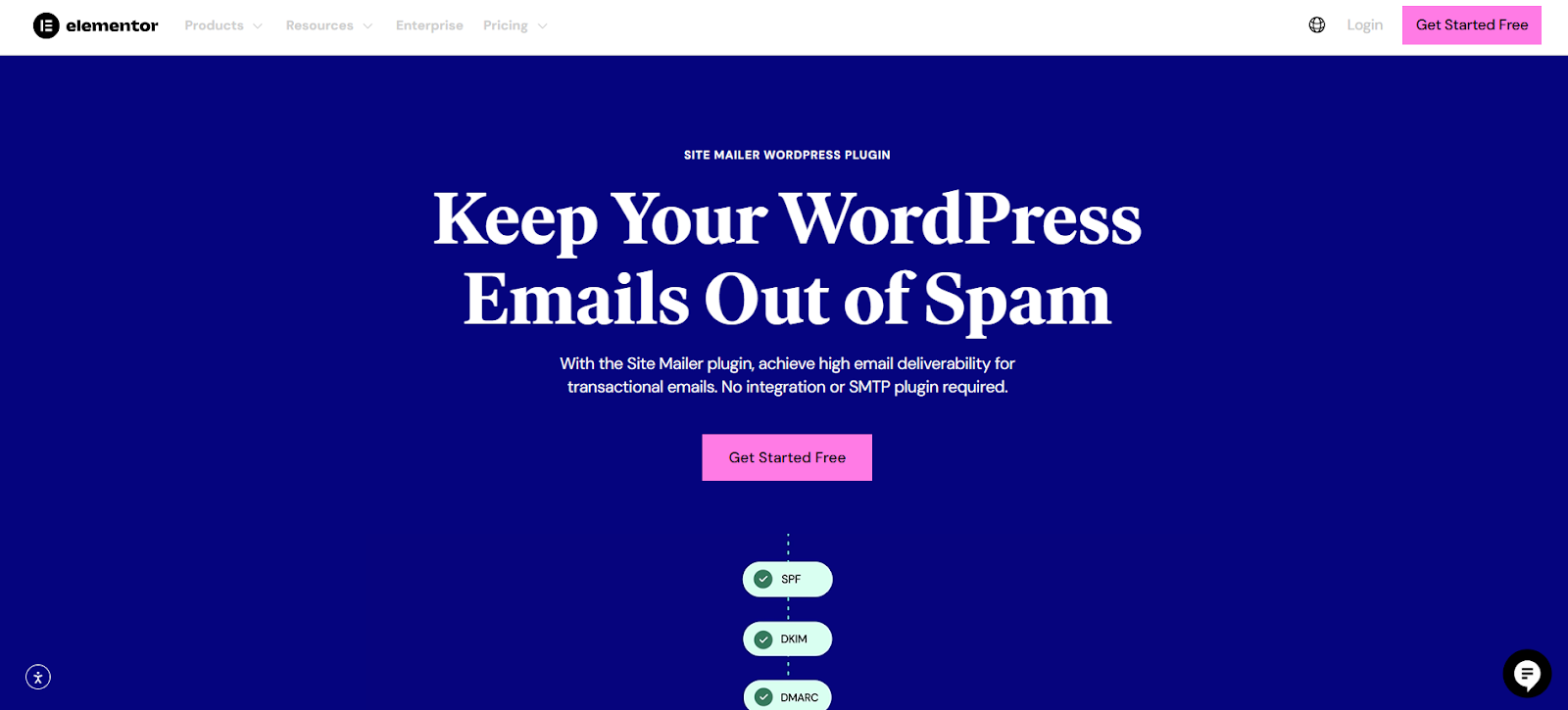
Transactional emails—such as order confirmations, shipping notifications, and password resets—are a fundamental part of the ecommerce customer experience. However, the default WordPress email function can be unreliable, often leading to emails failing to send or landing in spam folders. This can cause customer confusion and frustration. Site Mailer by Elementor is a plugin built to solve this problem by ensuring your critical website emails are delivered reliably.
Unlike many other solutions, Site Mailer is designed for simplicity and does not require you to configure complex SMTP settings or integrate with a third-party service. It provides valuable features like detailed email logs, open rate tracking, failure reason troubleshooting, and the ability to resend emails directly from your WordPress admin. By focusing exclusively on transactional reliability, Site Mailer gives you confidence that your most important automated communications are reaching your customers’ inboxes.
How to Choose the Right Plugins for Your Business
With so many options available, selecting the right ecommerce plugins can feel overwhelming. The best approach is to create a strategy based on your unique business needs, technical comfort level, and long-term goals.
- Assess Your Needs and Budget: Start by identifying your core requirements. Are you a small startup that needs an all-in-one solution with a low learning curve, or an established business that requires advanced features for scaling? Your budget will also play a significant role in your decisions, though many powerful plugins offer free versions or tiered pricing.
- Prioritize Key Features: Not all features are created equal for every business. Make a list of must-have functionalities. Do you need advanced design flexibility, robust marketing automation, powerful SEO tools, or top-tier site performance? Ranking your priorities will help you evaluate plugins more effectively.
- Consider Scalability and Integration: Choose tools that can grow with your business. A plugin that works well for 100 orders a month might not be suitable for 10,000. Look for solutions that are part of a larger ecosystem. For example, using Elementor’s suite of tools (Pro, AI, Image Optimizer, Ally, Site Mailer) ensures that different components of your site are built to work together, which can be more stable and scalable than patching together plugins from many different developers.
- Evaluate Support and Community: When you encounter an issue, reliable support is invaluable. Check if a plugin offers comprehensive documentation, responsive customer service, and an active user community. A strong community, like the one surrounding Elementor, can be an excellent resource for troubleshooting, sharing best practices, and finding creative solutions.
Wrapping Up
Selecting the best WordPress ecommerce plugins is a critical strategic decision for any online merchant. The tools outlined in this guide offer a range of solutions designed to help you build a professional store, market your products effectively, and optimize for both performance and conversions.
The key to success lies in choosing plugins that align with your specific business objectives and work well together. A comprehensive platform like Elementor provides a powerful foundation, offering extensive design control with its drag-and-drop editor and a suite of integrated tools for marketing, AI-driven content creation, and site optimization. By carefully selecting your tech stack, you can create a robust, scalable, and successful ecommerce website that meets the demands of your business and exceeds the expectations of your customers.
Looking for fresh content?
By entering your email, you agree to receive Elementor emails, including marketing emails,
and agree to our Terms & Conditions and Privacy Policy.







